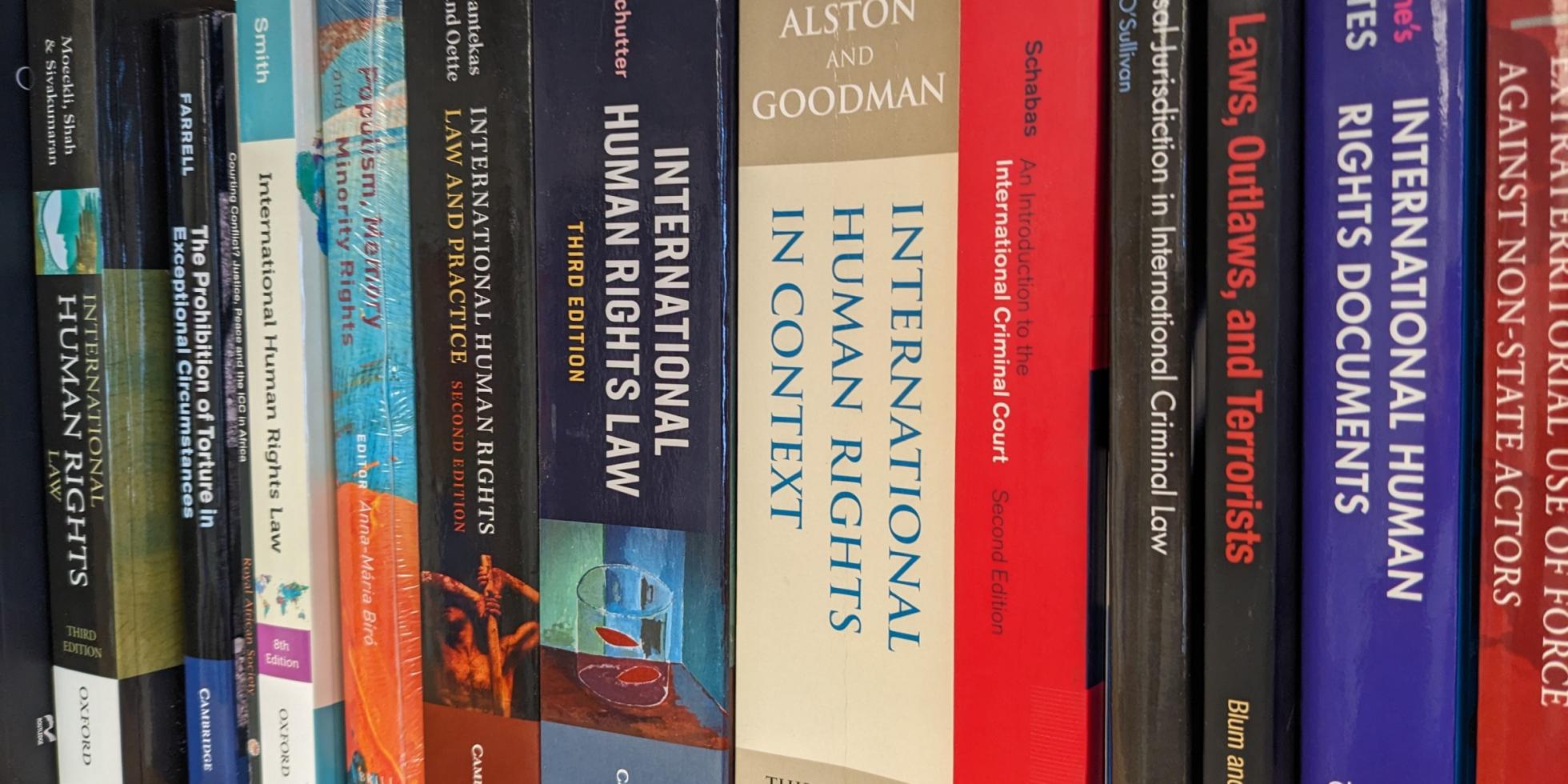The virtual human rights library brings together resources from multiple libraries and information services, both internal and external, to create an online hub dedicated to the study of human rights. This curation is unique in its interdisciplinary concerns and focuses on writings and research from social sciences, humanities, and law.
The virtual library is continually updated with the latest academic research in issue areas, as well as with relevant films, recorded conversations, and other forms of media.
Please Note:
The Virtual Library is usable by all visitors, but the hyperlinks to materials listed are for UChicago community members with a CNet ID and password.
Please direct feedback and suggestions to Kathleen Cavanaugh.
For technical assistance, email pozenhumanrights @ uchicago.edu.
Searchable Database
Click into the dropdowns to select the disciplines, keywords, and media type for your search, and then hit "Apply."
"Governmentality and EU Democracy Promotion: The European Instrument for Democracy and Human Rights and the Construction of Democratic Civil Societies."
The European Instrument for Democracy and Human Rights (EIDHR) is often considered the “jewel in the crown” of the European Union's democracy promotion. Its mandate encompasses the funding of democratizing civil society organizations and thus the facilitation of democratization “from...
"State neutrality and Islamic headscarf laws in France and Germany."
Neutrality has been the classic answer of the liberal state to religious and cultural difference. A number of multicultural critics recently debunked it as “myth” and group power in disguise. Comparing Islamic headscarf laws in France and Germany, I argue...
"What is democracy? Promises and perils of the Arab Spring."
The Arab Spring is still unfolding, as is the direction of change, and outcomes may be different for violent and nonviolent uprisings. This article focuses on three early cases of the Arab Spring – Tunisia, Egypt, and Morocco – to...
"Women against the state: Political opportunities and collective action frames in Chile's transition to democracy."
While transitions to democracy have been hailed as the most important phenomena of this century, few scholars understand the role that women have played in these metamorphoses. This article uses an historical in-depth case study to examine how and why...
Prisoners of Freedom: Human Rights and the African Poor
In this vivid ethnography, Harri Englund investigates how ideas of freedom impede struggles against poverty and injustice in emerging democracies. Reaching beyond a narrow focus on the national elite, Prisoners of Freedom shows how foreign aid and human rights activism...
States of Emergency: Documentaries, Wars, Democracies
Patricia Zimmermann describes the shifting terrains socially engaged documentary artists and experimental filmmakers encounter in the aftermath of corporate consolidation and technological transformations. Public space has been chiseled away and politically conscious documentaries forced to go underground. Viewing an array...
The Suicide of Miss Xi: Democracy and Disenchantment in the Chinese Republic
On September 8, 1922, the body of Xi Shangzhen was found hanging in the Shanghai newspaper office where she worked. Although her death occurred outside of Chinese jurisdiction, her U.S.-educated employer, Tang Jiezhi, was kidnapped by Chinese authorities and put...
Voting as a Rite: A History of Elections in Modern China
For over a century, voting has been a surprisingly common political activity in China. Voting as a Rite examines China’s experiments with elections from the perspective of intellectual and cultural history. Rather than arguing that such exercises were either successful or failed...
Weapons of Math Destruction: How Big Data Increases Inequality and Threatens Democracy
We live in the age of the algorithm. Increasingly, the decisions that affect our lives—where we go to school, whether we can get a job or a loan, how much we pay for health insurance—are being made not by humans...
Why the French Don't Like Headscarves: Islam, the State, and Public Space
The French government’s 2004 decision to ban Islamic headscarves and other religious signs from public schools puzzled many observers, both because it seemed to infringe needlessly on religious freedom, and because it was hailed by many in France as an...

